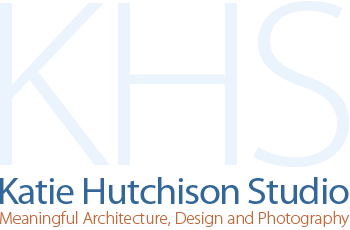Recommended New England courses in the creative arts
(Classes and schedules are subject to change so check program websites for updates.)
Fine Arts Work Center in Provincetown
It may not be too late to register for a creative, six-day, summer workshop at this well-respected program on the outer Cape. Thanks to Cynthia Huntington, who wrote about the FAWC in her book The Salt House, I thought to inquire about their offerings. According to their website, “The founders believed that the freedom to pursue creative work within a community of peers was the best catalyst for artistic growth. The Work Center has dedicated itself to this mission for nearly 40 years … The faculty and location have established the Work Center's summer courses in creative writing and visual arts as among the nation's finest and most attractive.” Sign me up. They did. You might find that some of these workshops spark your interest too:
Instructor: Peter Madden
July 6-11
Open to all
$650 + $25 studio fee
“Artists, writers, and anyone with a passion for creating and experimenting with new materials are welcome to this introduction to the tools and methods of bookbinding. We will work together through detailed demonstrations and guided, hands-on studio time. We'll start with simple structures and traditional materials (paper, binder's board and book cloth) then move into areas of your own interest and experimentation. During our week of work and play, you will complete at least six handmade books, derived largely of your own imagining and creative spirit, and you'll leave with the knowledge and skill to create dozens more. No unusual or expensive tools are required, and all the techniques presented can be easily continued and expanded in your own studio or at home.”
Instructor: Marian Roth
July 6-11
Open to all
$700 + $20 studio fee
“Over the years, as cameras first became automatic and then digital, artists have been drawn to pinhole photography for its simplicity, its unpredictability and the personal feel of its images. Pinhole photography attracts those photographers, writers and visual artists who are interested in the process of making images and who enjoy not knowing exactly how things will turn out. We will make cameras out of ordinary materials like cans and boxes and use photo paper to make negatives. Participants need have no sophisticated experience with photography. Advanced photographers will find that pinhole is a wonderful way to let go of controlling the outcome and will be astounded to see the negative and positive images they can create with a can.
What to bring: at least 25 sheets of 8x10 resin-coated, multi-grade photo paper. Get any surface except glossy—i.e. matte, semimatte, pearl, etc. Ilford is the best because it does not have the company name on the back and we will be making positives from the paper negatives. The paper will fit inside your camera so only get 11x14 paper if you are using a container that will hold it. It is not unusual for students to use close to 50 sheets of paper. You can buy re-boxed Ilford paper for a highly reduced price at www.wmpaul.com. There are no photo supply stores in the Provincetown area.”
Instructor: David Graham
July 27-August 1
Photography class. Open to all
$700 + photo processing fees
“The landscape is one of the great and ever inspirational subjects for artists. As a result, it has become overly difficult to see it in a new way. This workshop will help you to reinvent the landscape in your own way. We will get to know what has been done in the "distant" past and work that has been made as recently as yesterday. This familiarity will come in the form of slide shows and power points. You will see that the landscape can be transformed by the introduction of people, objects and even light. Color can be introduced or altered through the use of filters and gels. New notions of exposure can make the landscape a moving illusion. We will have fun figuring out how to fool Mother Nature into giving us a whole new subject.”
Instructor: Carlo Rotella
August 3-8
Open to all
$600
“As a nonfiction writer, whether journalist, essayist, memoirist, or historian, you have a duty to both the facts and their literary potential. You must tell a good story peopled with compelling characters and enlivened by vibrant prose, but you must also do justice to your material—your reporting, your research, your observations, all those notes that want to add up to something meaningful. We'll explore approaches to turning a mess of promising material into a story that's both true and beautiful, and has a coherent point. We will read and discuss examples of published work that engage this challenge in instructive ways, and we'll workshop student prose.
Please bring: one manuscript (12 doublespaced pages, 3000 words max.). The piece you select can be finished work, but it doesn't have to be; you may choose a work in progress, or one on which you are no longer making progress because you're stuck.”

